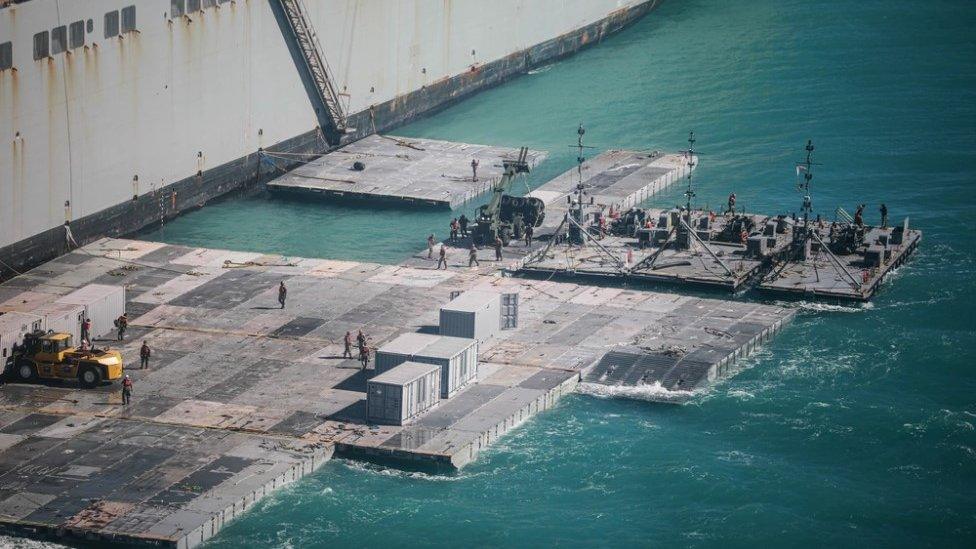Images show US military building floating pier for Gaza aid
- Published
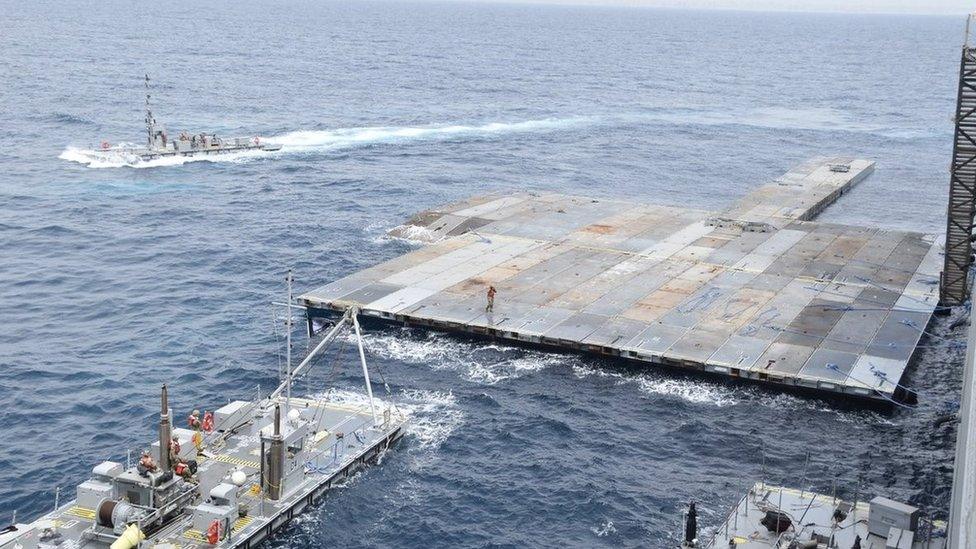
The Pentagon said that after construction of the floating pier was completed a causeway would be built
The US military has published photos showing a floating pier being built in the Mediterranean Sea to help increase humanitarian aid deliveries to Gaza.
Logistics vessels and personnel can be seen assembling the pier from steel segments, next to a US Navy ship.
Costing about $320m (£255m), the pier and a causeway attached to the shore should be operational in a week.
The goal is to deliver aid equivalent to as many as two million meals a day to Gaza to help avert a famine there.
A UN-backed assessment said last month that 1.1 million people were facing catastrophic hunger and that famine was imminent in northern Gaza by May.
"Right now, you're seeing construction of that floating, temporary pier, and then, you'll start to see construction of the causeway," US defence department spokeswoman Sabrina Singh told reporters in Washington on Monday.
"Eventually, that causeway will be... pushed into the coastline and secured by the [Israel Defense Forces]," she added.
The pier will be ready a week from now, US Secretary of State Antony Blinken said on Tuesday.
The UN has said a maritime corridor can never be a substitute for delivery by land, and land routes are the only way to bring in the bulk of supplies needed.
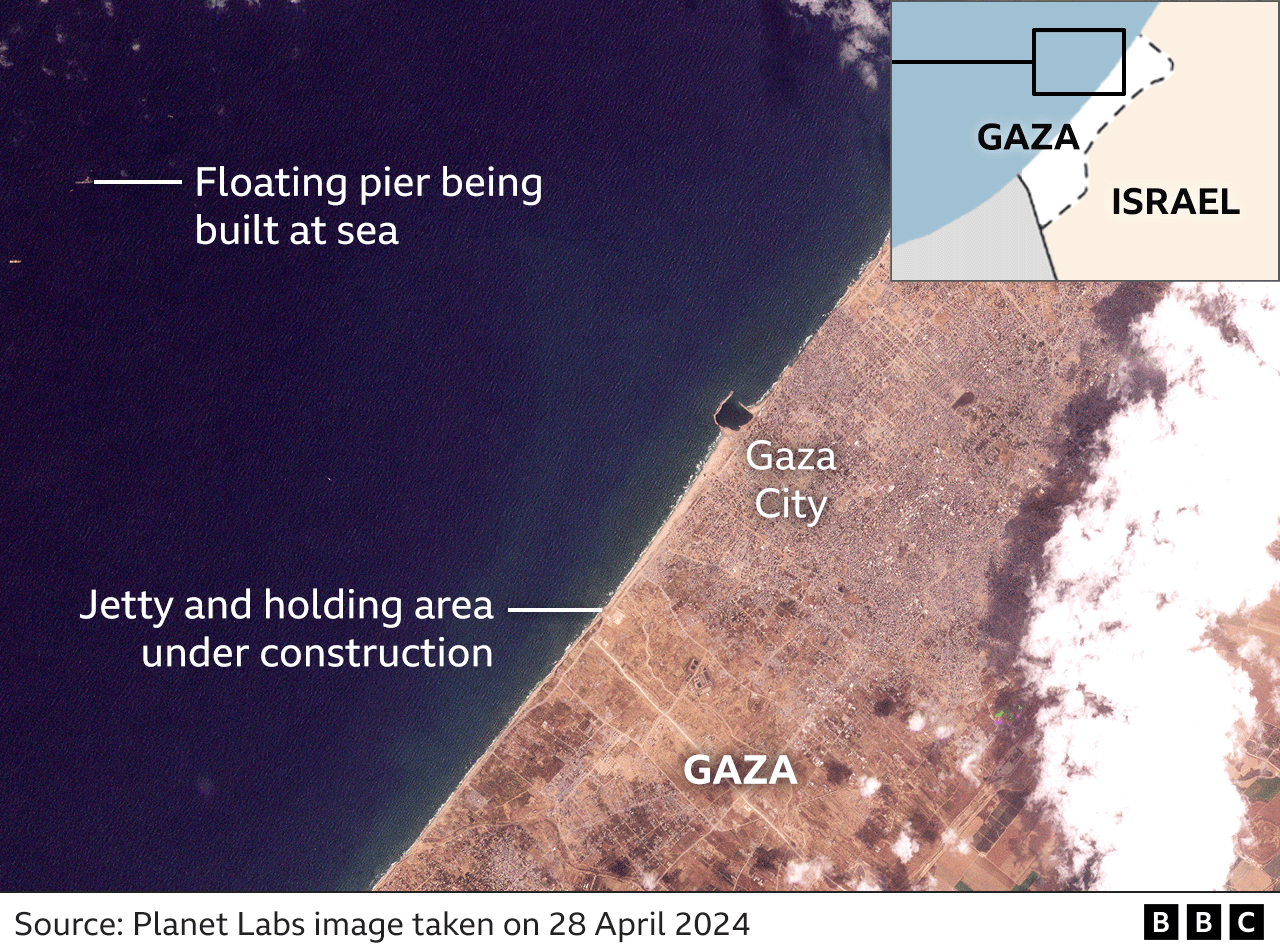
Satellite images published by Planet Labs meanwhile appeared to show the pier was being built next to the USNS Benavidez, a Military Sealift Command roll-on/roll-off ship, 11km (7 miles) north-west of the coast of northern Gaza.
A senior US military official said last week that the Israeli military's security role meant "no US boots will be on the ground" as part of the mission to construct and operate what is known officially as the Joint Logistics Over-the-Shore, or JLOTS.
An unnamed "third party" would also be driving aid lorries down the causeway, the official added.
Hundreds of sailors and soldiers involved in the operation will live and sleep aboard a British Navy logistical support ship, RFA Cardigan Bay, which has been deployed to the area.
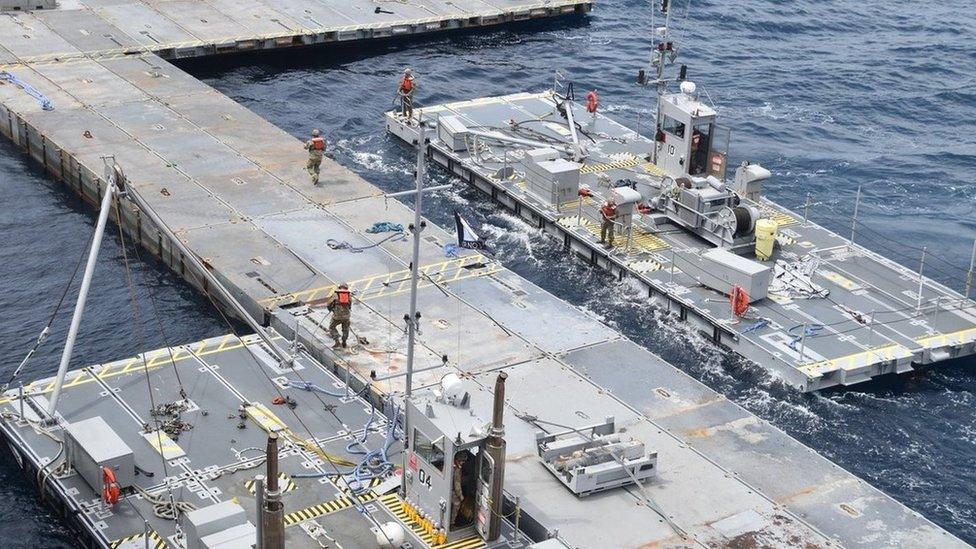
The US military said the floating pier would be able to handle 150 lorry loads of aid per day once fully operational
On Saturday, the IDF confirmed that the Israeli Navy would "secure the forces" operating the pier and said it was "committed to increasing the amount of humanitarian aid transferred daily into Gaza".
A senior Hamas official told the Associated Press last week, external that the group - which is proscribed as a terrorist organisation by Israel and the US - rejected "any non-Palestinian presence in Gaza, whether at sea or on land" and would "deal with any military force present in these places… as an occupying power".
He spoke a day after Israel said "terrorists" had fired mortars at the site during a visit by UN personnel. No injuries were reported.

The IDF also released photos and videos of what it described as the "extensive preparations" being carried out by its forces at a 67 acre (0.27 sq km) holding area where aid from the floating pier will be brought.
The site is just inland from the makeshift jetty built by the US charity World Central Kitchen in March for a maritime corridor that was suspended after seven of its aid workers were killed in an Israeli air strike.
The US military official said the floating pier should be able to handle about 90 lorry loads of aid per day initially, and then quickly scale up to about 150 lorry loads. A lorry can typically carry about 20 tonnes of supplies.
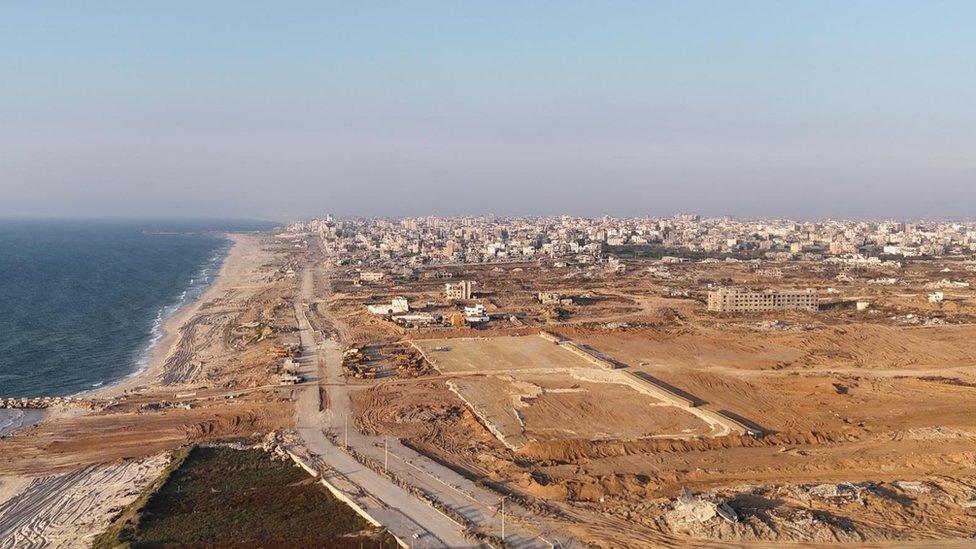
The Israel Defense Forces released aerial photos showing a holding area for the aid being prepared on Gaza's coast
The UN has blamed the severe food shortage on Israeli restrictions on deliveries, the ongoing hostilities and the breakdown of order.
On Friday, the UN said a daily average of 192 aid lorries entered Gaza during April via the Egyptian-controlled Rafah and Israeli-controlled Kerem Shalom crossings, which are in southern Gaza. The figure did not cover two recently-opened Israeli-controlled entry points in central and northern Gaza.
Israeli defence ministry body Cogat said an average of 350 lorries entered Gaza daily through all crossings in the week beginning 7 April.
It has insisted that Israel is not limiting aid deliveries and has blamed the UN for failing to distribute it to those in need inside Gaza.
Israel launched a military campaign in Gaza to destroy Hamas in response to the group's cross-border attack on southern Israel on 7 October, during which about 1,200 people were killed and 253 others were taken hostage.
More than 34,500 people have been killed in Gaza since then, according to the territory's Hamas-run health ministry.
- Published29 April 2024

- Published27 April 2024
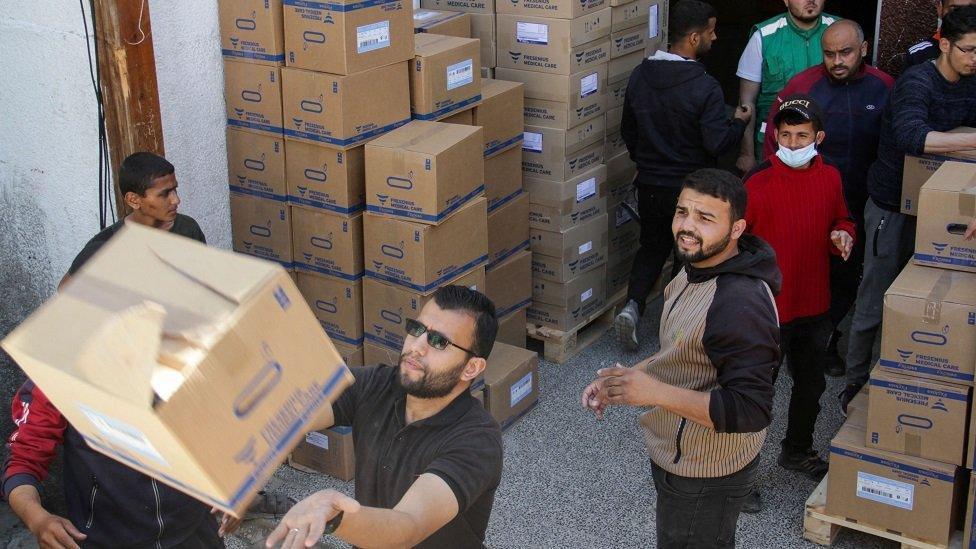
- Published26 April 2024

- Published13 March 2024
